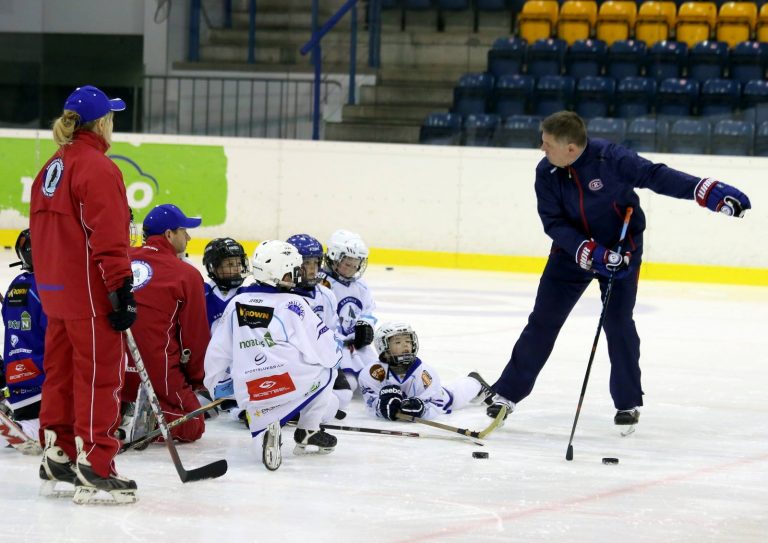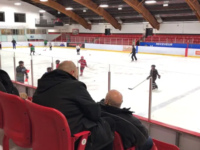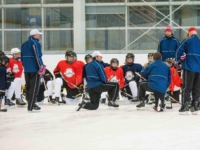People decide to become hockey coaches for a variety of reasons. Some are fresh out of a playing career and want to stay immersed in the sport. Some are parents who want to become more involved in their child’s hobby. Some wish to pursue a career in coaching and are looking to build a resume.
Regardless of the reasons people decide to give coaching a try, all hockey coaches have the same goal: to lead their team to victory. Some coaches, however, seem to do better at achieving that goal than others. Why is that?
Well, the players on a team make a difference, but it’s a minimal difference. The greatest coach in the world can lead even the worst team of hockey players to dominating victories. Similarly, the worst coach in the world won’t be able to rally even the best of players to accomplish much of anything. Long story short, the success of a hockey team often hinges on the quality of its coach.
Then what factors make a hockey coach great? In truth, there are many, but here are five of the most important habits that make an effective minor hockey coach.
1. Be respectful
One of the most important habits for a hockey coach to have is to always show respect. Giving your players fantastic advice is no use if you’re rude to them and act superior and condescendingly; your players won’t listen to you at all.
Respect forms the basis for all strong relationships, whether in the sport of hockey or not. Show your players respect by listening to them, using kind words, and treating them as equals rather than subordinates. If you make sure to do that, your players will show you respect as well, regardless of their age level. They’ll be less rowdy and more eager to listen and learn. That way, you can be sure that any advice you give falls on attentive ears.
2. Be encouraging/use positive reinforcement
Alike the habit of showing respect, always do your best to encourage your players and use positive reinforcement.
“You can catch more flies with honey than with vinegar.” Cliché, right? Yeah, you’ve heard that a million times, but that’s because it’s true. Positive encouragement motivates players to fix their mistakes and improve themselves—-they’ll enjoy practice more and won’t fear making mistakes in front of you. Plus, it goes a long way towards building respect with your players.
Now, this isn’t to say that you should refrain from pointing out mistakes. However, perhaps try using a strategy like masking each criticism with a complement:
“Great hustle to get to the puck, Jordan, but just remember to keep your stick on the ice while you skate!”
With a bit more encouragement and positive reinforcement, you may be surprised at seeing the amount of effort from your players skyrocket.
3. Be patient
All effective hockey coaches must display patience.
Inevitably, you’ll have your patience tested many times throughout your coaching career. Some of your players will bicker and argue for trivial reasons and they seemingly won’t stop. Some of your players will have difficulty understanding or practicing concepts you teach them and won’t appear to be making any progress. You’ll likely get yelled at and berated by parents who are upset because their child “isn’t getting enough ice time” or “isn’t receiving enough attention.”
As a coach, you need to be the problem-solver, and problems don’t get solved by losing your patience. Try to remain calm, impartial, and analytical about every challenging situation you face. Also, constantly remind yourself that some players learn faster than others and will take more time to show improvement.
Keep your patience, and you’ll keep the effort, respect, and attention of your team.
4. Set a good example
In other words, practice what you preach.
No matter the age group or skill level, your players look up to you as an example. Do your best to follow the standard that you set, or else your actions will diminish the value of what you’re teaching.
Players won’t listen to a coach who shows up late to every practice but then demands that the team show up on time. Players won’t listen to a coach who berates parents and players of the opposing team but then demands that the team always show respect. If you want your players to demonstrate a moral or value, make sure you’re demonstrating it yourself, too.
5. Learn
Just because you’re teaching hockey doesn’t mean your learning stops!
All the most successful coaches in the world continue to study the game of hockey. The only way to improve is to identify your mistakes, accept them, and strive to fix them.
To make sure you’re improving, you should have dedicated study time each week where you use some source (or multiple sources) of learning to study hockey. You could watch professional games and take notes, watch replays of your own team’s games, read hockey strategy books, or research new coaching techniques.
Whatever you decide to do for your studying, just make sure you’re putting in the work. Remember, the success of a hockey team often hinges on the quality of its coach. The more you know, the more your hockey team will know, and the better chance they’ll have of dominating their division.
Remember, no coach is perfect. No matter how much coaching experience anyone has, mistakes are bound to be made. You might lose your patience or forget to set a good example—-it happens to the best of coaches. What truly makes the difference between a mediocre coach and a great coach is their attitude.
You need to consistently push yourself to learn more about the game. You need to carry a mindset that allows you to accept your mistakes and motivates you to work on them. Overall, make sure to be respectful, use positive reinforcement, be patient, set a good example, and continue learning about hockey. If you do your best to implement all of the above, you’ll be making waves in the hockey world in no time.
Tim Turk Hockey Offers Minor Hockey Team Development Training…on Your Team’s Practice Ice!
For More information, please visit www.TimTurkHockey.com/team-development or contact us today!






